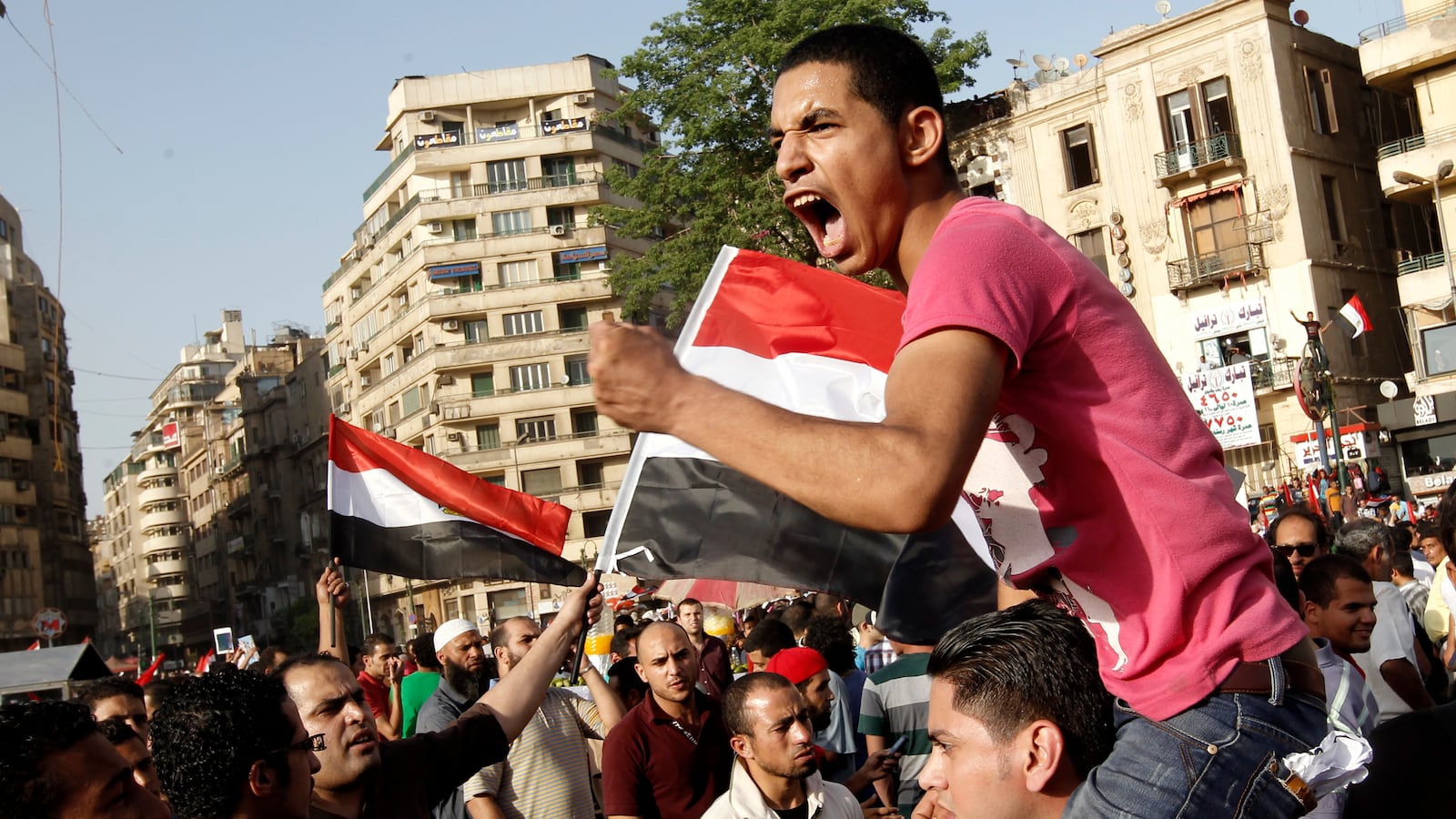“Ben Ali fled!” This was it: An impending termination of the oppression and hardship that comprised so many of our Arab landscapes. A sense that cruelties would no longer be left unchallenged, a distinct hope injected into every prophecy about what awaited the Arab world. My mistake, in retrospect, was assuming what conclusion would immediately follow this beautiful spark. I was convinced that the struggle for freedom would be quickly realized, simply because the initial spectacle of rebellion had been so magnificent.
In the years since, it has become harder to maintain the euphoria of those early months of the Arab uprisings. The mismatch between expectations and what actually occurred seems to have instilled in even the most devout activists a sense of fatigue, an exhaustion at the utter magnitude of the task that continues to confront our societies.

This is not a reflection of the failures of these movements. It is testimony to the extended processes that they require, that there are no overnight reincarnations, no instant renaissance. The American project—allowing for the conceit that it has been perfected—took hundreds of years to overcome those most basic obstacles to freedom, slavery and segregation. Similarly, most European states took centuries to unify and become liberal democracies. How can the Arab world expect, or be expected, to develop its aspirations in only a few months or years?
For some observers, it may have appeared that the goals were specific and limited: the overthrow of individual despots. But if the past years have proven anything, it is that the aspirations of these uprisings cannot be realized simply with the removal of a dictator, or even his successor. This is ongoing. This is a process. And it will take time.
The act of keeping faith is a demanding chore, one that quarrels with the instinct to despair rather than continue the struggle. But it is an imperative if freedom remains the objective. Those individuals who have lost family members, homes or livelihoods, are living embodiments of the prevailing resolve for liberation.
Yet, it is still routine to see a bewildering insistence on defeat. Naysayers appear determined to spend their time trying to define the upheaval, or relate them to seasonal changes, practices that seem to captivate certain Western audiences. Arab spring or Islamic winter, these metaphors often insidiously suggest that a definitive outcome has either been reached or has become inevitable. Worst of all, they elide the obvious point that all revolts fluctuate between periods of progress and regression.
The world witnessed the protests in Tahrir with amazement, cheered as Mubarak was overthrown, cringed when the Muslim Brotherhood came to power, and then called foul when they were removed from it. Now, again, commentators who are convinced that Arabs are inherently backward and incapable of overcoming oppression say the revolutions have been “lost.” They fail to recognize that the dominant attribute of these uprisings is their unpredictability.
Pessimists peddling doctrines of defeat neither anticipated these rebellions in the first place, nor correctly charted their trajectories. This view holds the Arab world to be stunted, reflecting a cynicism born from the dismissal of our cultures and capacities. Why should those that have been so consistently incorrect feature prominently in conversations about what will, or what should, come next?
My objective is not to force-feed optimism. It is to reiterate what I believe we already know: a will to fight for something better has endured, prevailing even under the torture chambers of Syria or the disarray in Libya. There are moments when it is hard not to despair. The oft-forgotten Bahrain remains a symbol of our failures and hypocrisy, our unwillingness to offer solidarity unconditionally and without strategic precondition. Syria’s agony languishes as a mere footnote in global discourse. However, a curious and wonderful silver lining amid all of these shortcomings is that the one thing more exhausted than the Arab people is their patience for oppression.
Perhaps it is only the impulse to derive meaning from events that came at such great human cost, but I have to believe that something was learned in the past few years, about resistance and organization and the unstoppable instinct for freedom—something that cannot be unlearned. What we have all witnessed is less a set of political transformations than an irreversible cultural revolution, the core of which being that passivity is no longer the primary response.






